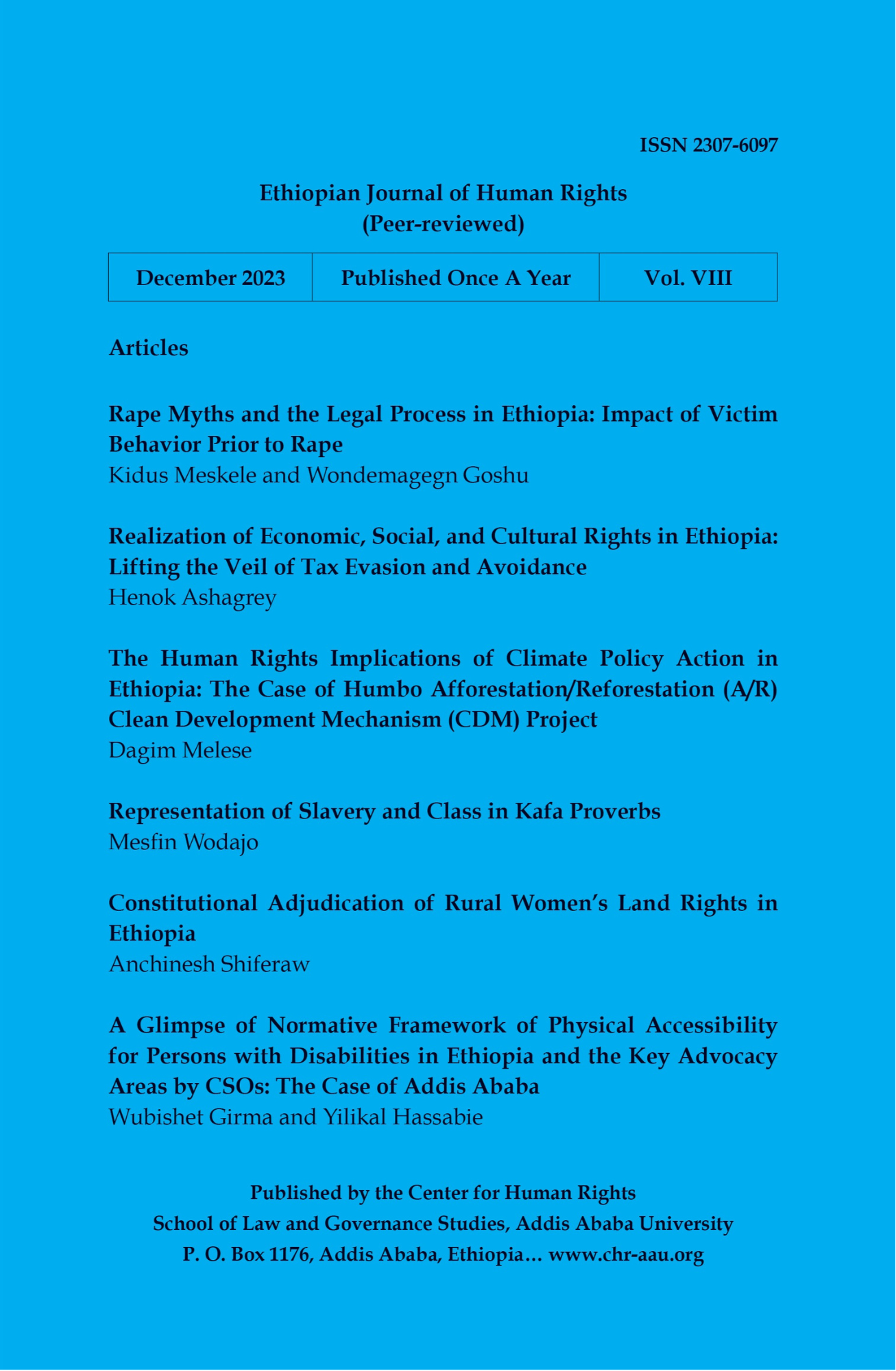Rape Myths and the Legal Process in Ethiopia: Impact of Victim Behavior Prior to Rape
Abstract
Ethiopia has implemented numerous policy improvements including reforming a legislation against rape. However, it is still unclear how much these changes have shifted the focus of rape case processing from the victim’s reputation and behavior to the offender’s criminal behavior. The purpose of this article is to study how the myth of “victim behavior” affects rape prosecutions in South Ethiopia Region. The study used a socio-legal method of empirical data collection, which combined survey, interview, and court document analyses. All in all, 230 key actors, including judges, prosecutors, defense lawyers, and investigating police officers answered a self-administered survey questionnaire. Besides, 40 interviews were conducted and 316 prosecution and court files were analyzed. The survey data shows that the majority of respondents (64.82%) rated their attitudes on the six-item scale above average indicating that many of the key actors in the legal process are inclined to believe in rape myths and, when addressing rape cases, have been influenced by victims” purported actions before rape. Besides, data from interviews, as well as case review analysis, revealed that the victim’s reputation and risk-taking behavior prior to rape have a significant influence on the legal process. As a result, the findings of this study indicate that rape victims in the study area are more likely to be unfairly treated in the legal process due to the influence of rape myths on the key legal actors.
Keywords: rape myths, legal process, victim, South Ethiopia Region
1 PhD in Law candidate, School of Law, Addis Ababa University 2 Assistant Professor, School of Law, Addis Ababa University.

